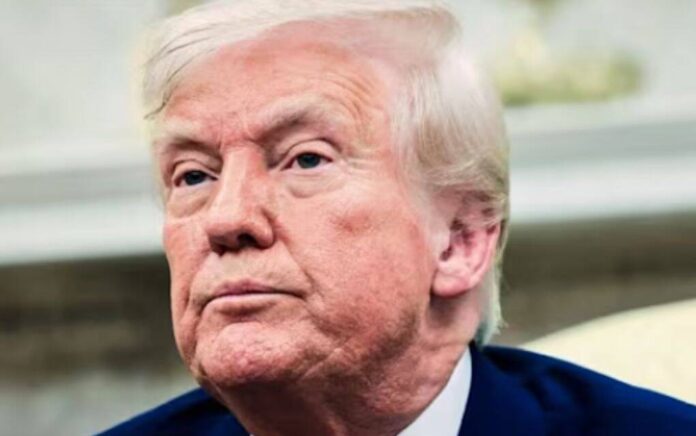
The Trump admin isn’t playing around. They’re ready to get things done.
And the White House just slapped Congress with a message that they simply can’t ignore.
Trump Administration Moves to Slash Public Broadcasting and Foreign Aid Funding
The Trump administration has launched a bold initiative to reshape federal spending, targeting the elimination of all financial support for National Public Radio (NPR) and the Public Broadcasting Service (PBS), alongside significant reductions in foreign aid.
On Monday, the White House sent a clear signal to Congress, unveiling a detailed plan to rescind $1.1 billion allocated to the Corporation for Public Broadcasting (CPB) and $8.3 billion from USAID.
This “rescissions” package, first revealed by the New York Post, was crafted by White House budget director Russ Vought at the request of Republican congressional leaders. The administration accuses CPB of a “lengthy history of anti-conservative bias” and points to “waste, fraud, and abuse” at USAID as justification for the cuts.
The plan also includes smaller reductions to other agencies, such as $15 million from the US Institute of Peace, $27 million from the Inter-American Foundation, and $22 million from the US African Development Foundation, aligning with Trump’s February executive order to scale back their operations to the bare minimum required by law.
The proposal sets a 45-day countdown for Congress, now under Republican control in both chambers, to approve or reject the cuts. Unlike a similar 2018 effort by Trump that fell short by a single Senate vote, administration officials are optimistic about its passage.
“Since day one, the Trump Administration has targeted waste, fraud, and abuse in Federal spending through executive action, DOGE review, and other efforts by departments and agencies. Congress has expressed strong interest in supporting those efforts, and requested the Administration transmit rescissions to the Hill for swift approval,” Vought wrote in a memo.
The memo highlights specific grievances with public broadcasting, noting that NPR’s former CEO Katherine Maher once labeled Trump a “fascist” and a “deranged racist”—remarks she later expressed regret for during congressional testimony. It also critiques PBS for airing two programs featuring transgender characters.
On the foreign aid front, the administration calls out several USAID projects as wasteful, including $9.4 million for “Championing Transformative Changes in Gender Norms,” $3 million for Iraqi Sesame Street, $500,000 for electric buses in Rwanda, $6 million for Palestinian media, and $3 million for circumcision, vasectomies, and condoms in Zambia, among others.
President Trump has been vocal about his desire to defund NPR and PBS, writing on Truth Social on March 27, “NPR and PBS, two horrible and completely biased platforms … should be DEFUNDED by Congress, IMMEDIATELY.”
The current proposal builds on that call, amplified by Elon Musk’s Department of Government Efficiency (DOGE), which aims to slash $1 trillion from annual federal spending—a move that could cut the federal deficit in half.
While some DOGE cuts don’t require congressional approval, this package needs a simple majority to pass, a threshold Republicans are prepared to meet.
Senate Budget Committee Chairman Lindsey Graham is among the GOP leaders backing the plan, which could bypass the Senate’s typical 60-vote requirement through a separate budget reconciliation bill that also incorporates Trump’s campaign promises, like eliminating taxes on tips, overtime, and Social Security benefits.
Sen. John Kennedy (R-La.) praised the initiative, tweeting, “NPR and PBS have a right to publish their biased coverage — but they don’t have a right to spend taxpayer money on it. It’s time to defund the Corporation for Public Broadcasting.”
However, both NPR and PBS rely on diverse funding sources, including foundation grants, advertising, and listener donations, suggesting they could weather the loss of federal support without shutting down.
This isn’t Trump’s first attempt to overhaul federal spending. In 2018, his administration proposed $14.7 billion in cuts, which passed the House but failed in the Senate after Sen. Richard Burr (R-NC) opposed eliminating $16 million from the Land and Water Conservation Fund.
This time, with a unified Republican Congress and Musk’s DOGE initiative driving momentum, the administration is betting on a different outcome.
Stay tuned to The Federalist Wire.



















